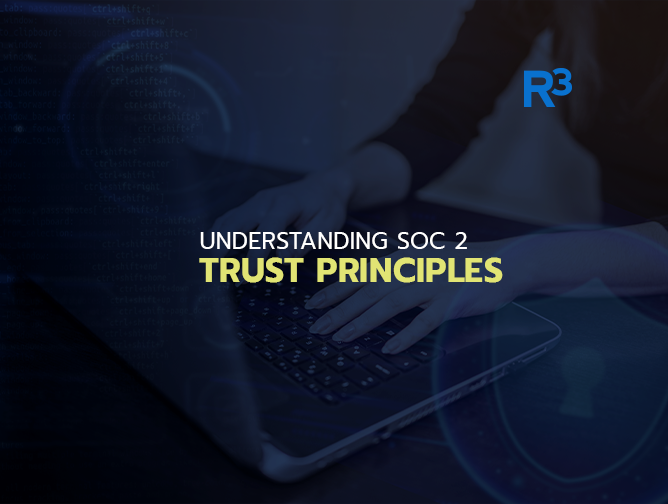In an age where data breaches and privacy concerns have become daily news, businesses must go above and beyond to safeguard customer information. SOC 2 (System and Organization Controls 2) is a framework designed to do just that. At the heart of SOC 2 are the Trust Services Criteria, a set of principles that guide organizations in securing customer data. In this blog post, we’ll delve into these Trust Principles, explore what they entail, and why they’re crucial in building trust and confidence in data security.
What Are the SOC 2 Trust Principles?
The SOC 2 framework, developed by the American Institute of Certified Public Accountants (AICPA), centers around five Trust Services Criteria that serve as the foundation for evaluating and reporting on the controls and processes of service organizations. These principles are:
- Security: This principle addresses an organization’s commitment to protecting its systems and data against unauthorized access and potential breaches. It includes controls related to access management, data encryption, incident response, and monitoring.
- Availability: Availability ensures that a service organization’s systems are consistently accessible and that any downtime is minimized. This principle encompasses controls related to system reliability, redundancy, and disaster recovery planning.
- Processing Integrity: Processing integrity focuses on the accuracy and completeness of data processing. It includes controls to prevent data errors, unauthorized changes, and inaccuracies in processing. Change management is a key component of this principle, ensuring that any changes to systems and software are controlled and well-documented.
- Confidentiality: Confidentiality controls are all about protecting sensitive information from unauthorized access. These controls encompass information protection, encryption of data, and vendor management. They dictate how sensitive data should be handled to prevent disclosure and breaches.
- Privacy: Privacy is a crucial principle, especially in the era of GDPR, CCPA, and other data protection regulations. It includes controls related to notice and consent, data minimization, data handling and retention, individual access, and disclosure. These controls are essential for ensuring that an organization collects and manages personal information in compliance with privacy policies and legal requirements.
Understanding the Significance of SOC 2 Trust Principles
Now, let’s delve into why these Trust Principles are so important:
- Customer Trust: In today’s data-driven world, customers are more concerned than ever about how their data is handled. By adhering to the Trust Principles, organizations can build trust with their customers, assuring them that their data is secure and that the organization takes data protection seriously.
- Competitive Advantage: Having a SOC 2 report that demonstrates adherence to the Trust Principles can be a significant competitive advantage. It sets a business apart in a crowded market, highlighting its commitment to data security, availability, processing integrity, confidentiality, and privacy.
- Risk Mitigation: Implementing the controls associated with the Trust Principles helps mitigate risks. By focusing on security, availability, processing integrity, confidentiality, and privacy, organizations can reduce the likelihood of costly data breaches, system failures, and non-compliance with privacy regulations.
- Operational Excellence: These principles promote operational excellence by encouraging organizations to assess their control environments, identify weaknesses, and make necessary improvements. In the process, they become more efficient and effective in protecting customer data.
- Regulatory Compliance: With an increasing number of data protection regulations in place, organizations must align their practices with these requirements. The Trust Principles align well with many of these regulations, making it easier for organizations to demonstrate compliance.
- Effective Incident Response: The Trust Principles include controls for incident response, helping organizations prepare for and efficiently manage security incidents. This is crucial for reducing the impact of data breaches and preserving an organization’s reputation.
The SOC 2 Trust Principles are the bedrock of data security and customer trust in the digital age. These principles encompass critical areas of security, availability, processing integrity, confidentiality, and privacy. By adhering to these principles, organizations can not only build trust but also gain a competitive edge, mitigate risks, and ensure regulatory compliance. In a world where data is one of the most valuable assets, the SOC 2 Trust Principles play a pivotal role in securing sensitive information and maintaining customer confidence.
By prioritizing these principles, organizations can demonstrate their commitment to safeguarding customer data and foster trust in an increasingly interconnected world. Trust is invaluable, and organizations that prioritize data protection and adhere to these principles are more likely to thrive in the digital age.


